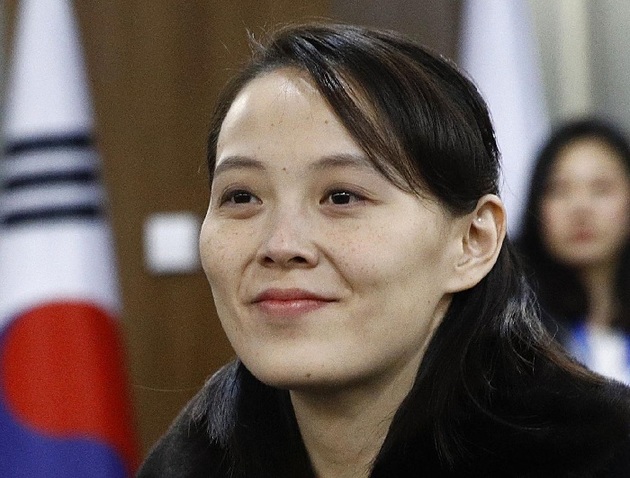Pyongyang and Washington have shown different interpretations of Kim Jong Un’s latest remarks about possible talks with the Biden administration. Since Kim Jong Un, the North Korean leader, urged his country to be prepared for both “dialogue and confrontation” with the new U.S. administration during the ruling Workers’ Party’s meeting last week, Washington and Pyongyang have traded different interpretations of his remarks. His remarks were first direct reaction from Kim toward the Biden administration’s new policy on North Korea, The Diplomat writes.
White House National Security Advisor Jake Sullivan said on June 21 that Kim’s comments were an “interesting signal,” while reiterating Washington’s willingness to resume negotiations with Pyongyang on its nuclear programs. The next day, according to the Korean Central News Agency, Kim Yo Jong, the sister of the North Korean leader, said in a statement that Washington appears to have the “wrong expectation” about her brother’s remarks. The North Korean foreign minister also made comments in a separate statement, saying that Pyongyang is not even considering a resumption of negotiations with Washington.
To persuade North Korea to come back to the negotiating table, U.S. President Joe Biden appointed a new special envoy for North Korea during the bilateral summit with the South Korean President Moon Jae-in last month. Biden tapped Sung Kim, who was in charge of setting the agenda in working-level talks with the North for the summit between then-U.S. President Donald Trump and Kim Jong Un. Sung Kim arrived in Seoul this week to have a meeting with his South Korean and Japanese counterparts. According to local news reports, Sung Kim, an American of Korean descent, is fluent in Korean, which will make it easier to communicate with his North Korean counterparts without interpreters in meetings.
During his visit to Seoul, Special Envoy Kim said in the meeting with his counterparts that Washington supports inter-Korean cooperation and he is ready to meet with his North Korean counterparts “anywhere, anytime, without preconditions.”
At the same time, Washington and Seoul also agreed to discontinue an alliance working group as a conciliatory gesture. The working group, which had been excoriated by the North, was seen as an obstruction to inter-Korean exchanges by the progressives in South Korea.
Since the U.S. and North Korea failed to reach an agreement at the Hanoi summit two years ago, the two countries have been playing hardball, which each side asking the other to meet their unachievable goals first. The United States wants concrete steps on denuclearization before any sanctions relief, while North Korea demands sanctions relief before any moves to dismantle its nuclear arsenal. Even now, with a new U.S. administration in office, North Korea has not been active in seeking channels to resume the stalled talks between the two countries. Meanwhile, the South Korean government has expressed its consistent stance that it is willing to support and mediate the talks between the U.S. and North Korea, but the North seems uninterested in the South’s efforts, as Moon has only months left before the end of his term.
“Kim Yo Jong rejected notions that her brother had expressed a willingness for talks anytime soon, essentially pushing back against U.S. efforts to put the diplomatic ball in Pyongyang’s court,” Leif-Eric Easley, a professor at Ewha University in Seoul, told The Diplomat.
Easley also added that her statement was meant to pour cold water on hopes for re-engagement. Instead, North Korea appears determined to maintain its self-imposed isolation out of fear of COVID-19. The South Korean government has sought to resume dialogue with the North by proposing inter-Korean cooperation and raising the possibility of vaccine distribution to the North. Even after North Korea blew up the joint liaison office n Kaesong, which had been a symbol of communication between the two Koreas, the Moon administration has consistently pursued a “dialogue,” saying it is the only way to build a peaceful Korean Peninsula.
According to local news reports, Washington has agreed with Seoul’s position to engage in inter-Korea cooperation, but Pyongyang has rebuffed to Seoul’s proposals without providing specific measures and demands for proceeding with cooperation.
“The Kim regime also wants to see larger incentives from Washington before returning to negotiations. In the meantime, it is attempting to sow discord in South Korean domestic politics over Seoul’s upcoming defense exercises with the United States.” Easley said.
South Korea and the U.S. have conducted downsized joint military exercises for the past few years due to the COVID-19 pandemic and the North’s peevish response to the exercises as a hostile act against the North. After having summits with Kim, the U.S. also agreed to downsize the joint military exercises to mollify North Korea, but Pyongyang wants the complete termination of the exercises and, ultimately, the withdrawal of all 28,500 U.S. troops stationed in South Korea.
“North Korea can judge that if it cooperates well with China, it does not have to talk with the United States, which demands nuclear abandonment,” Cheong Seong-chang, a senior fellow at the Sejong Institute think tank in South Korea, told The Diplomat. Cheong added South Korea and the U.S. are following in the footsteps of the Trump administration and clinging to hope of another bilateral talk between Washington and Pyongyang, even though that approach has already failed.
“The U.S. needs to bring North Korea back to the negotiating table by pushing for the four-party talks on North Korea’s nuclear program by involving China and South Korea in the talks,” Cheong said. “It is very unfortunate that the South Korean government is only focusing on ‘impossible dialogue’ with North Korea.”






